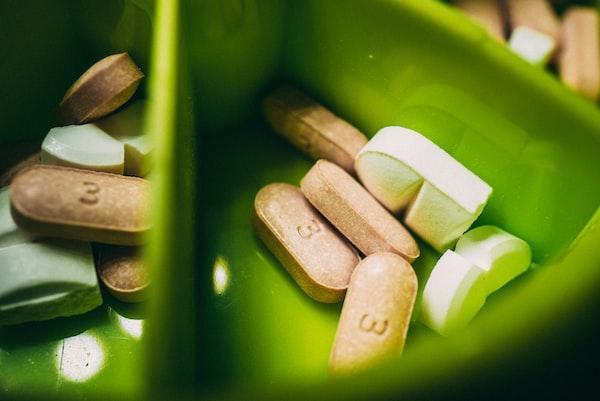Mental health is an important part of overall health and well-being. It involves our emotional, psychological, and social well-being. It affects how we think, feel, and behave. Mental health is important at every stage of life, from childhood and adolescence through adulthood. If you’re struggling with mental health, you might be considering turning to dietary supplements and dietary gummies for help. But can they really improve your mental health? Keep reading to find out.
Dietary Supplements for Anxiety
The use of dietary supplements for anxiety is a popular topic among both mental health professionals and the general public. This is because anxiety is a common mental health disorder that can lead to a variety of negative consequences. Dietary supplements are natural, non-pharmaceutical interventions that have been shown to be effective in the treatment of anxiety. There are a variety of dietary supplements that have been shown to be effective in the treatment of anxiety. The most commonly used dietary supplements for anxiety are omega-3 fatty acids, probiotics, and magnesium.
Omega-3 fatty acids are a type of polyunsaturated fatty acid that is found in fish oil and other animal-based products. Omega-3 fatty acids are beneficial for the treatment of anxiety because they help to increase the levels of serotonin and dopamine in the brain. Probiotics are beneficial bacteria that are found in the gut. Probiotics have been shown to be effective for the treatment of anxiety because they help to regulate the gut-brain axis. Magnesium is a mineral that is found in food and supplements. Magnesium is beneficial for the treatment of anxiety because it helps to calm the nervous system. Note that these supplements should also be combined with therapy, such as mental health therapy in Los Angeles if the anxiety becomes debilitating.
Dietary Supplements for Depression
Depression is a serious mental illness that can cause a wide variety of symptoms, including feelings of sadness, hopelessness, and worthlessness; changes in appetite and sleep habits; difficulty concentrating or making decisions; and thoughts of suicide. While antidepressant medications are often effective in treating depression, they may not be right for everyone. Some people may prefer to try treatment options such as dietary supplements before taking medication. There are many supplements that have been shown to be helpful in treating depression. Some of the most commonly used supplements include omega-3 fatty acids, St. John’s wort, and SAM-e:
- Omega-3 fatty acids are a type of essential fatty acid that is found in fish oils and certain types of seafood. Studies have shown that omega-3 fatty acids can be helpful in treating depression. One study found that adding omega-3 fatty acids to standard antidepressant medication was more effective in treating depression than using medication alone.
- St. John’s wort is a plant that has been used for centuries to treat a variety of illnesses, including depression. Studies have shown that St. John’s wort may be helpful in treating mild to moderate depression. One study found that St. John’s wort was more effective than placebo in treating depression.
- SAM-e is a nutrient that is found in the body and is involved in the production of serotonin, a neurotransmitter that is thought to play a role in depression. Studies have shown that SAM-e may be helpful in treating depression. One study found that SAM-e was more effective than placebo in treating depression.
Dietary Supplements for Eating Disorders
In general, people with eating disorders may benefit from taking supplements, as they often have difficulty getting the nutrients they need from food alone. Some of the most common nutritional deficiencies seen in people with eating disorders include deficiencies in protein, essential fatty acids, vitamins, and minerals. These deficiencies can cause a wide range of symptoms, including fatigue, weakness, mood swings, and hair loss. In severe cases, they can even lead to health problems such as osteoporosis and heart disease. Taking supplements can help to fill in the gaps in the diet and help to address these nutritional deficiencies. In some cases, supplements may be all that is needed to help a person recover from their eating disorder. In other cases, supplements may be used in combination with other treatments, such as therapy and medication.
Overall, if you are considering taking supplements to treat your mental health, it is important to speak to your doctor first. They can help you to determine which supplements are right for you and can advise you on the correct dosage and how to best incorporate them into your treatment plan.









